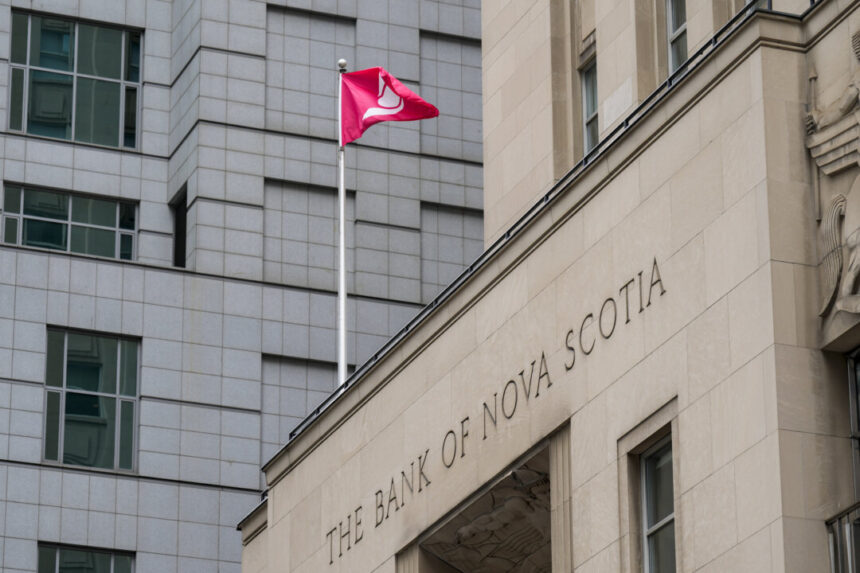A Russian woman who has been residing and working in Canada for the past eight years is facing financial difficulties as her money is stuck due to sanctions against Russia’s largest bank. As a result, she is initiating legal action against Scotiabank and the Canadian government.
Daria Zubashchenko’s case sheds light on the impact of Canada’s financial sanctions beyond just wealthy oligarchs, with regular individuals also being affected. While others have encountered similar issues, the amounts involved were too small to pursue legal action.
Zubashchenko filed two applications in Federal Court, one against the Bank of Nova Scotia and the other naming Global Affairs Canada and the Attorney General as respondents. She, a Russian citizen living in Canada since 2016, holds a work permit and dutifully files her taxes each year.
Having graduated from Simon Fraser University with a degree in psychology in 2021, Zubashchenko and her mother sold two properties in Russia that same year, with her share amounting to nearly $324,000. In February 2022, she attempted to transfer around US$90,000 from her sanctioned account at Russia’s Sberbank to her Bank of Nova Scotia account, but the funds never reached her Canadian account.
Upon inquiry, Zubashchenko discovered that the wire transfer had been blocked under Canada’s Special Economic Measures (Russia) Regulations. Subsequently, Scotiabank informed her that the funds were being held and disclosed to the Royal Canadian Mounted Police in compliance with the sanctions regulations. She was advised to apply for a permit from Global Affairs Canada to release the money.
Despite Zubashchenko’s lawyer asserting that the sanctions do not apply to her, Scotiabank’s customer concerns office refused to release the funds without a permit from Global Affairs. Appeals to Scotiabank’s customer complaints appeals office were also unsuccessful, with the bank citing legal obligations to freeze payments involving Sberbank.
Global Affairs Canada stated that permits can be granted by the minister of foreign affairs to allow specific transactions prohibited by Canadian sanctions in exceptional circumstances. However, the agency cannot disclose information about permit applications to maintain privacy and commercial confidentiality.
Both Scotiabank and Global Affairs Canada emphasized their compliance with applicable sanctions laws and the need to follow legal obligations. Zubashchenko’s applications argue that she is not subject to the sanctions and that the funds did not benefit Sberbank in any way.
The regulations place responsibilities on banks to determine if funds are linked to sanctioned individuals or entities and to report any transactions involving them to the RCMP. Zubashchenko claims that these provisions do not mandate banks to withhold funds.
As the legal battle unfolds, it highlights the complexities and challenges faced by individuals caught in the crossfire of international sanctions. Zubashchenko’s case underscores the need for a fair and transparent process to address such financial disputes effectively.
Please rewrite the following sentence to avoid plagiarism:
“The new study on climate change offers insight into the potential impacts of rising global temperatures.”
Source link





